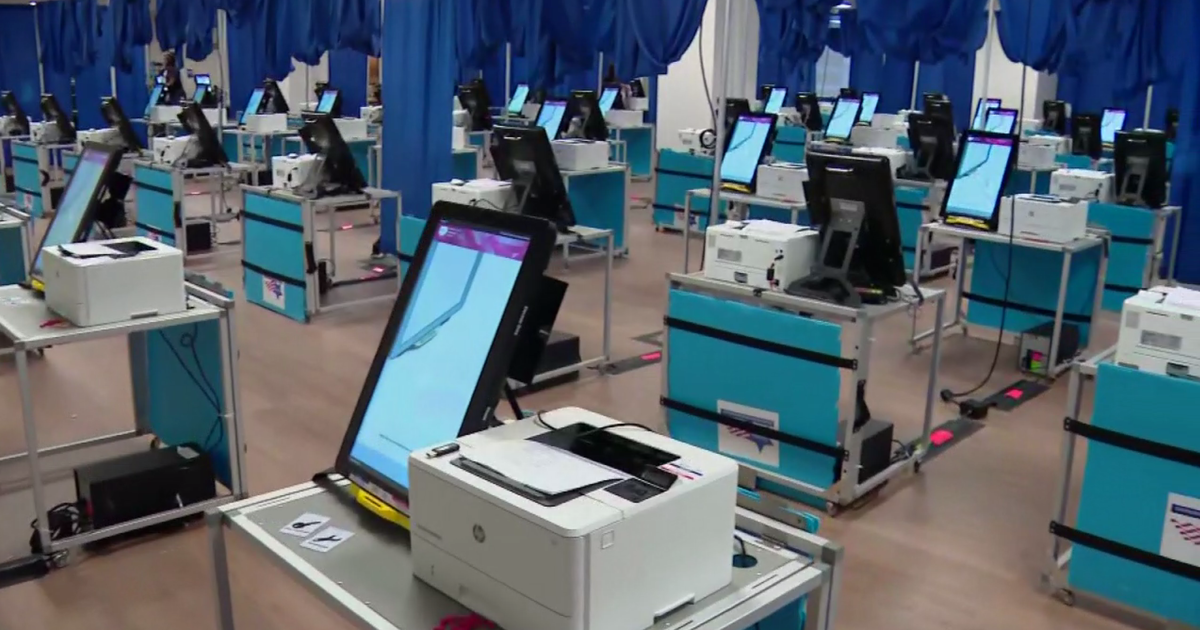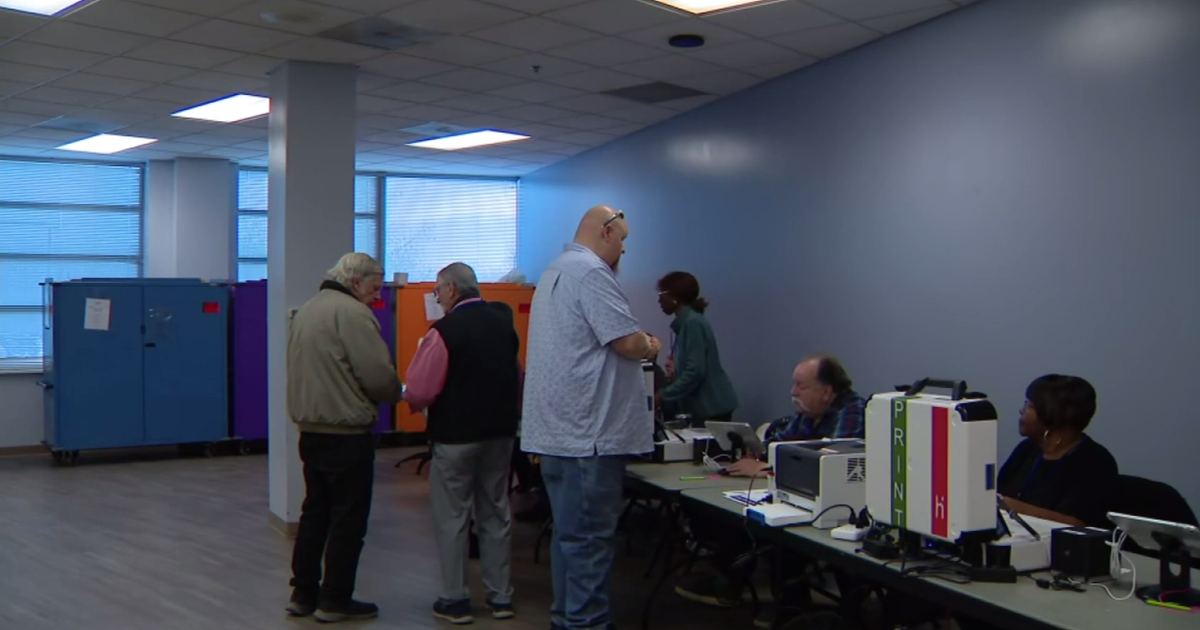Shortages of poll workers and polling places put election officials on alert for November
Washington — While states are trying to expand vote-by-mail for voters in the primary and general elections due to the coronavirus pandemic, voters are still showing up to cast their ballots in person, leading to long lines and delays caused by the consolidation of polling locations and a shortage of election workers.
But with the November election expected to bring record turnout, state elections officials and voting rights advocates see the primaries as a snapshot of what to expect in four months and have begun taking steps to beef up their armies of poll workers.
"There are many people who value the experience of going out and voting in person, and many of those people had to weather long lines to have their voices heard in the primary," Kristen Clarke, president and executive director of the National Lawyers' Committee for Civil Rights Under Law, told CBS News. "We need to make sure that we have sufficient numbers of polling places that are open to accommodate the high levels of turnout that we've seen during the primary and will increase dramatically during the general election, and we need properly trained — not just warm bodies — but properly trained individuals who can staff those sites on Election Day. It's extremely critical that we get this right."
In Jefferson County, Kentucky, where Louisville is located, the Kentucky Exposition Center served as its lone polling location for more than 530,000 registered voters.
Beth Thorpe, a Democratic strategist and communications chair for the Louisville Democratic Party, said the size of the convention center allowed those voting in-person to comply with social distancing guidelines and keep wait times below what voters in other states, such as Georgia and Nevada, experienced. But Thorpe said problems arose for some voters who were unaware of the change in polling locations and had difficulties getting to the large facility.
"There was one bus shuttle provided from a single location downtown, and we don't know who simply couldn't access that shuttle or get to the Expo Center because they didn't have access to a vehicle or lived outside the public transportation network," Clarke said. "Giving people options and thinking carefully about low-income communities and marginalized voters in particular is important."
Thorpe was at the convention center last Tuesday when Louisville voters cast their ballots in the state's primary, including the Democratic Senate primary between ex-fighter pilot Amy McGrath and state Representative Charles Booker. As the clock ticked toward 6 p.m. local time, when polls officially closed in the state, Thorpe recalled yelling at voters who were in their vehicles or in the parking lot to run if they wanted to vote.
"People ditched their cars, we had older people running," she said. "It ended up being a lot of confusion."
Both Booker, who experienced a late surge in the race, and McGrath asked the Jefferson Circuit Court to keep the voting site open three additional hours, but the request was denied. A judge did, however, order election officials in Jefferson County to keep polls open until 6:30 p.m., ensuring those who were in line at the convention center would be able to cast their ballots.
Thorpe urged Kentucky elections officials to devise a clear plan for voting in November, when turnout is expected to be far higher, especially since the coronavirus threat is not expected to fade.
"We need to start planning immediately, to do PSAs on television on how to vote in the election and partner with organizations all over the state to make sure everyone knows how to vote," she said. "We'd like information sooner, clearer, on how it works."
Primaries in some states that have held in-person voting have been plagued by hours-long waits at the polls, delays that are attributed in part to a consolidation of polling places and shortage of poll workers. But in anticipation of the November general election, some states have launched campaigns to expand their ranks of election workers, especially since the group typically skews older and is therefore more at risk of serious illness from the coronavirus.
In Michigan, the secretary of state's office launched Democracy MVP, an initiative to recruit poll workers for its August primary and November general election.
By Tuesday, the state had recruited 2,245 volunteers from 78 of Michigan's 83 counties, Jake Rollow, spokesman for the Michigan Department of State, said.
"We know that traditionally, many of the folks who serve as election workers are older, and what we heard from clerks are some of those people were telling them they weren't going to be able to serve this year," Rollow said. "We are looking for people willing to serve in their absence."
More than half of the poll workers recruited said they heard of Michigan's Democracy MVP campaign through social media, Rollow said, and those selected will undergo training from both the state and counties ahead of the upcoming elections.
Poll workers could work either the August primary or the November election, or could be tasked for both, and they may be in county clerk's offices processing ballots or at in-person polling places.
"We know that Michiganders have a great desire to participate in democracy and have a healthy democracy," Rollow said.
Iowa's Secretary of State's Office also helped counties with recruiting poll workers through its own statewide initiative and received more than 1,000 responses from Iowans interested in becoming a precinct election official, Kevin Hall, a spokesman for Secretary of State Paul Pate said.
The state used media interviews, posts on social media and targeting in specific counties to spread the word about its need for poll workers, the number of which are needed is determined by each county.
Iowa held its primary June 2, and Pate's office is working to determine what changes need to be made ahead of the general election, Hall said.
Clarke, of the National Lawyers' Committee, said her organization is also working with lawyers in its network to encourage people to serve as poll workers.
"It's critical that jurisdictions get creative in how they can activate a new generation of people to serve as poll workers," she said.



